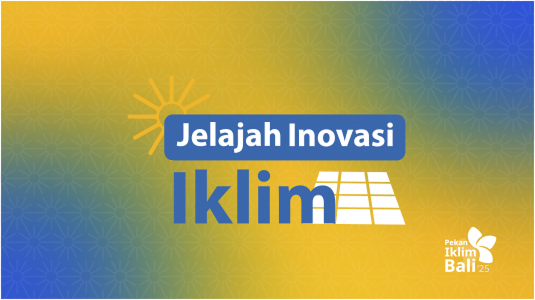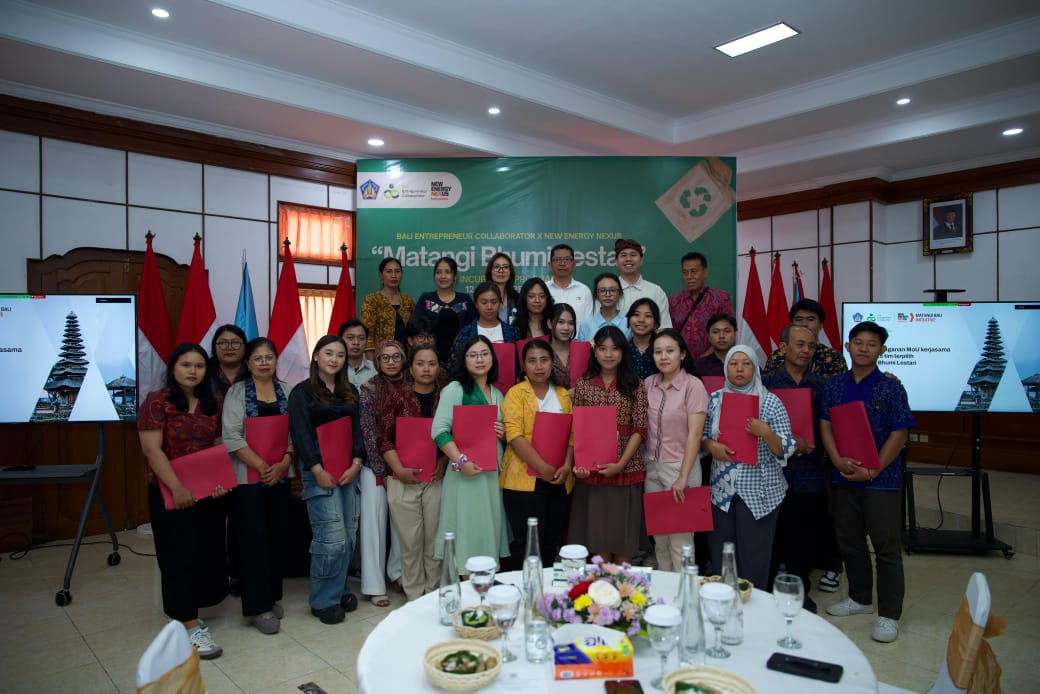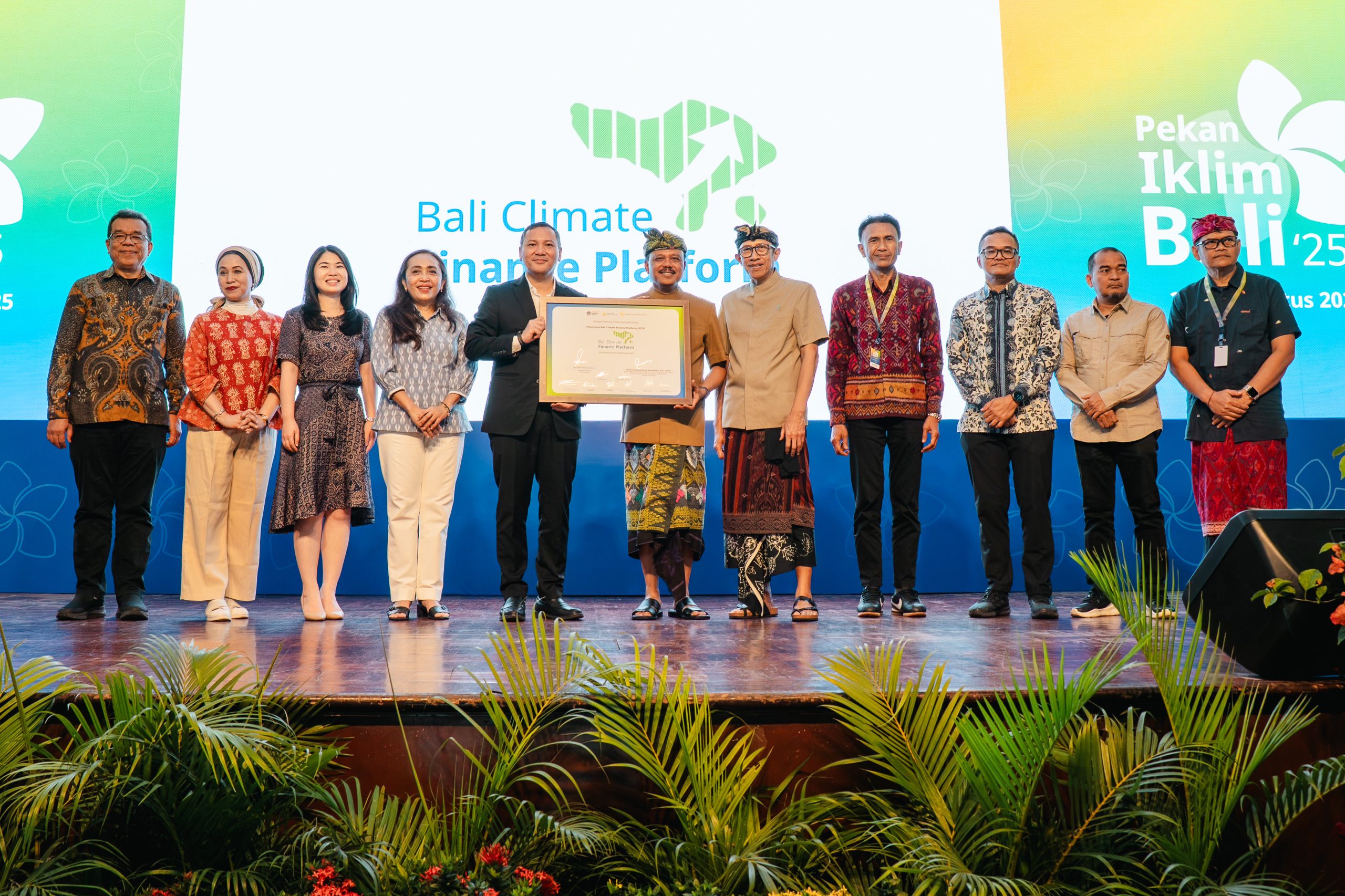Denpasar, August 26, 2025 – At Bali Climate Week 2025, grassroots innovation took center stage through the Jelajah Inovasi Iklim program.
Policy debates may dominate international climate forums, but in Bali, the solutions are not only written in reports – they are lived in rice paddies, village hubs, and community workshops.
At Bali Climate Week 2025, the Jelajah Inovasi Iklim program pushed participants out of hotel ballrooms and into Bali’s living laboratories. Over two days, they walked subak irrigation channels, tested eco-technologies, and met the people designing practical responses to climate stress. The aim: to show how grassroots action can inform—and pressure—policy.
At Kopernik’s Innovation Lab, the approach is trial and error, not grand strategy. Since 2010, the Ubud-based NGO has pursued “lean experimentation” – testing small, failing fast, and scaling what works. Their pipeline of affordable technologies has produced tools that strengthen micro-entrepreneurship, address water scarcity, and open pathways for spin-offs.
A different chapter unfolded in the terraced paddies of Subak Kedisan Kaja in Tegallalang.
Here, the KONEKSI Transformasi Digital project—led by WRI Indonesia with CSIRO and Udayana University – demonstrated how digital tools like the Sapatani app can sit alongside centuries-old subak governance.
Participants are invited to begin the day with a warm welcome from the pekaseh (subak leaders) and farmers of Subak Kedisan Kaja, before learning about the KONEKSI Transformasi Digital program and its interventions, such as the seasonal planting calendar and the Sapatani application.
They are then invited to take part in painting besek – woven bamboo boxes used in ritual offerings – as a way of honoring the land and its harvest. The experience continues with hands-on demonstrations of how farmers integrate home gardens, livestock, and organic fertilizer production into their daily practices.
Meanwhile, at the Makadaya Impact Center participants moved through an interactive gallery—tasting climate-friendly food, upcycling waste, and pounding natural dyes into sustainable fashion fabrics.
Founded in 2020, Makadaya has become a hub for changemakers nationwide, proving that community empowerment and social entrepreneurship are not side projects but central to resilience.
The goal of the Changemaker Experience was not only to showcase ongoing initiatives but also to spark critical and creative thinking about climate challenges. Through direct exposure and experiential learning, participants gained practical insights into what sustainable social entrepreneurship looks like on the ground.
Finally, participants are also invited to step into IDEP’s headquarters, a space that feels more like a living classroom than an office. Here, rainwater harvesting tanks stand beside food gardens, wastewater treatment systems filter household effluents through green biofilters.
The site is a working model of how permaculture principles – start from your own household (what IDEP calls Zone 1) and scale outward – can be applied to water management. Participants will see how irrigation systems conserve water in food gardens, how wastewater gardens prevent pollution, and how communities can collectively reduce flood risks by reducing runoff.
The interactive visit will also include discussions with IDEP facilitators, who guide communities on adapting these solutions to their own homes and villages. By integrating local wisdom, appropriate technology, and community participation, IDEP believes water stewardship can ripple outward – from families to neighborhoods, to entire districts.
The event is initiated by the Bali Net Zero Emissions Coalition in collaboration with the Bali Provincial Government. For the first time, Bali becomes a meeting point for ambition and action – bringing together governments, communities, businesses, academics, and the public to advance collaborative, innovative, and impactful climate solutions.










